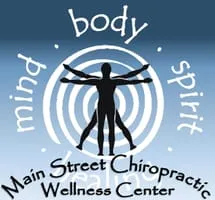 Currently as you are reading this article you are looking at a screen. Whether it be a computer, tablet or smartphone, it’s still a screen. If you are like the majority of Americans using technology while you are reading this blog, you have other messages from apps popping up on said screen or a tone to alert you to a message. When the tone chimes or the message appears on the screen you make a split-second decision. Choose to respond immediately or let it go until after you are finished reading. It’s ok, current studies on human behavior regarding technology have already informed me of what you will choose. Don’t worry, this article can wait, answer the message and come back to it…or should you worry?
Currently as you are reading this article you are looking at a screen. Whether it be a computer, tablet or smartphone, it’s still a screen. If you are like the majority of Americans using technology while you are reading this blog, you have other messages from apps popping up on said screen or a tone to alert you to a message. When the tone chimes or the message appears on the screen you make a split-second decision. Choose to respond immediately or let it go until after you are finished reading. It’s ok, current studies on human behavior regarding technology have already informed me of what you will choose. Don’t worry, this article can wait, answer the message and come back to it…or should you worry?
A lot has changed since the first personal computer was introduced to the public for sale in 1975. In the world of technology, going back 43 years is like going back to the stone age. We went from personal computers that were giant beasts to slimline laptops and now handheld tablets. Bulky cell phones and pagers have become smartphones and now watches we can talk on. We are now as awesomely cool as that yellow jacketed detective, from the comic strips, Dick Tracy! But at what cost?
In March 2016, at a Zócalo/UCLA event in downtown Los Angeles, UCLA Chancellor Gene Block, UCLA psychologist Patricia Greenfield and health economist Anusuya Chetterjee delivered a foreboding message regarding technology in front of a captivated audience. What do you suppose the topic of the evening was that had the audience on the edge of their seats willing to know more? Moderator, Chad Terhune, a senior correspondent at California Healthline and Kaiser Health News, opened the topic of the evening – “Is digital technology destroying our health” with the following question to the panel…“All this digital technology — this explosion we’ve all seen in our hands — is it doing more harm than good?”
From the panel’s answers to the countless research studies that have followed, the answer to the question is no longer shocking. When we use technology not only are we destroying our health but we are altering our bodies at a cellular level. And if you have been checking messages in between reading this article, you are already experiencing the highest cost of technology...becoming addicted. How could that be you wonder? How could this screen that I am looking at have the same effects as alcohol, drugs, gambling…etc.
In a day-long conference this past February, Robert Lustig, a professor of pediatrics focused on endocrinology at the University of Southern California and author of The Hacking of the American Mind stated, “It’s not a drug, but it might as well be. It (technology) works the same way…it has the same results.”
Dr. Lustig knows what he is talking about because he studies what happens to our brains when they’re addicted whether it be sugar or heroin. He has found that our brain responds to technology in the same way it responds to other addictive substances. “Technology, like all other ‘rewards’, can over release dopamine, overexcite and kill neuros, leading to addiction,” he said.
So, what exactly does too much use of technology actually do to our brain in regard to creating an addiction? Just like too much stimuli in our lives causes stress in our bodies, too much technology causes stress in our brains which leads to negative effects. First off, more stress leads the brain to release cortisol, which can kill neurons on the “memory” center of the brain (the hippocampus). Second, stress can inactivate the brain’s prefrontal cortex, or the “executive” part of the brain, which normally limits dopamine and our sense of pleasure or reward. When our brain gets used to a higher level of dopamine, it wants us to keep seeking out the addictive substance or habit.
In the next section of this three-part series you will learn life-changing information regarding the ABCDE’s of addiction as it relates to technology dependence and how the body processes the recurrent stress. Our inability to consistently abstain from the glowing screens in our hands is leading to impairments in behavioral control. Translation: your need to keep your head down, buried in the screen is creating grave consequences not only personally but societal too. When the message alert goes off, we immediately crave the reward from either the text we sent or the social media we just posted. Unaware to us that need to know is creating diminished recognition of significant problems within our behaviors and interpersonal relationships. In our need to communicate more streamline and frequently we are instead breaking down communication! The end result being a dysfunctional emotional response that leads to depression and further chronic health issues.
So, now that you have finished reading Part 1, was checking your messages in between worth it or could it have waited 5 minutes? Check out Part 2, to find out for sure!
By: Liz Loy, Chiropractic Assistant
